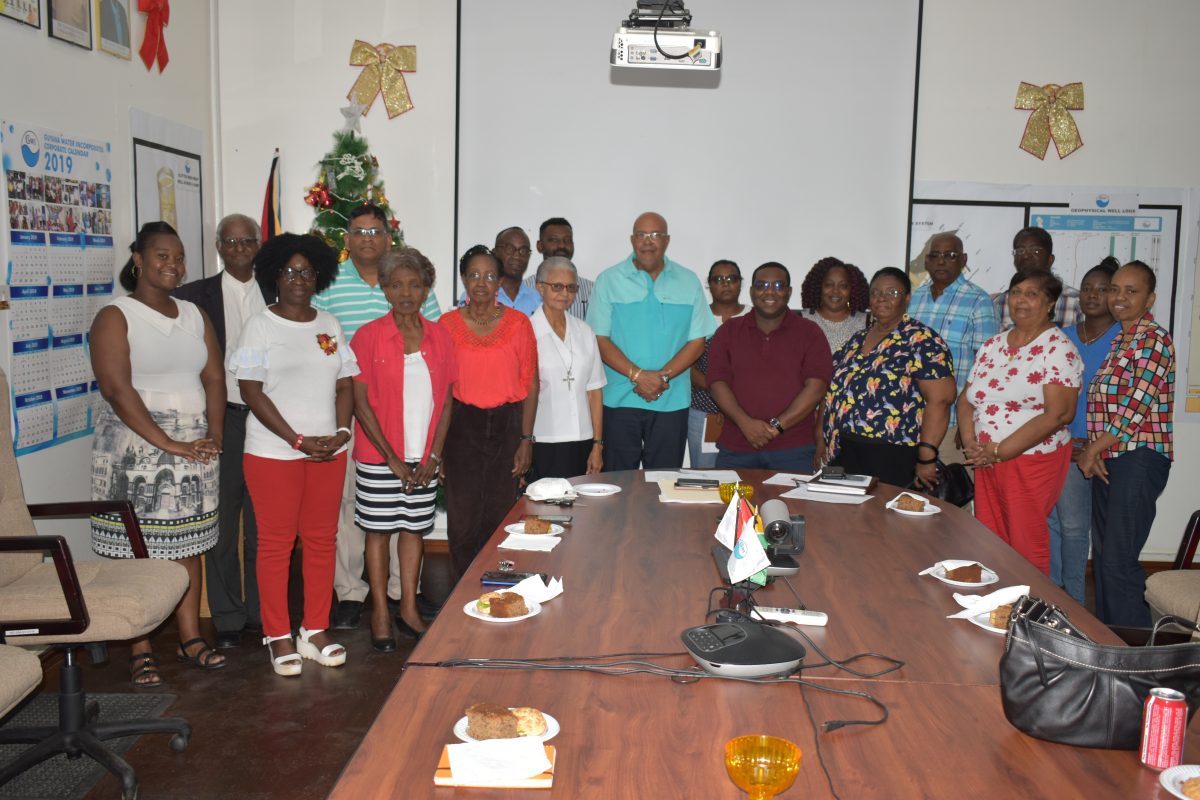The Guyana Water Inc (GWI) on Tuesday gave a water concession to indigent homes and orphanages.
During a meeting with representatives from the organisations, Managing Director of GWI Dr. Richard Van West-Charles said they will enjoy a 50 per cent rebate on every occupant’s consumption, a release from GWI said yesterday.
He said that GWI is aware of the economic challenges and hardships these homes and orphanages face and following discussions with the Board of Directors and the Public Utilities Commission, GWI took the decision to cushion their operating expenses.
“This is part of the quality of life which the President speaks of”, Dr. Van West-Charles said.
Responding to a question from the representative of an orphanage, the Managing Director said that the concession is a policy decision that was passed with the blessing of the Board and authorization of the PUC and therefore it will be valid under any new management of the utility.
Executive Director of Commercial Services and Customer Relations, Marlon Daniels, voiced his delight in the position taken by management to grant the concessions.
GWI has set a minimum daily per capita consumption of 220 litres (0.220m3). The concession is 50% of the expected daily per capita consumption (110 litres per person per day) to all eligible institutions. Each institution will be evaluated at the applicable residential tariff. The water supply concession rate will be applied retroactively from December 1, 2019.
Daniels further stated that there are two pre-conditions to qualify for the concession. These are: each organisation must be metered and their occupancy levels must be up-to-date and communicated to GWI at all times.
Based on information received from the Regions and database records, there are seventeen orphanages across all Regions with a total population of four hundred and sixty-six occupants. Historically, the release said, GWI has never placed such institutions in a specifically defined customer category.
Besides the orphanages, there are 22 other indigent homes that care for the elderly. These 22 homes have a total population of six hundred and ninety-eight persons.





